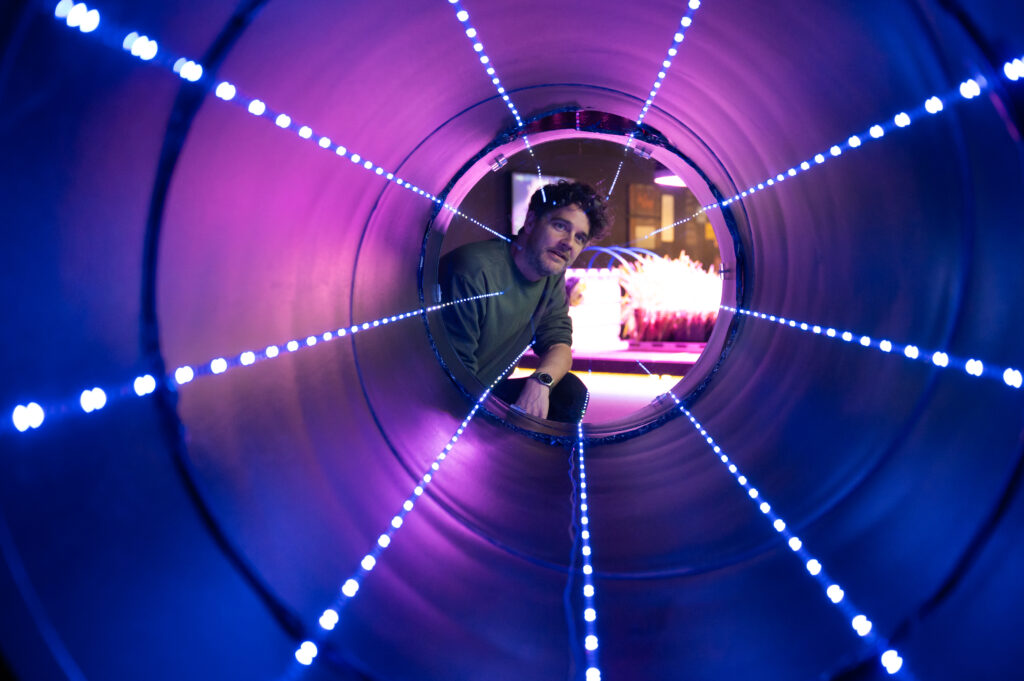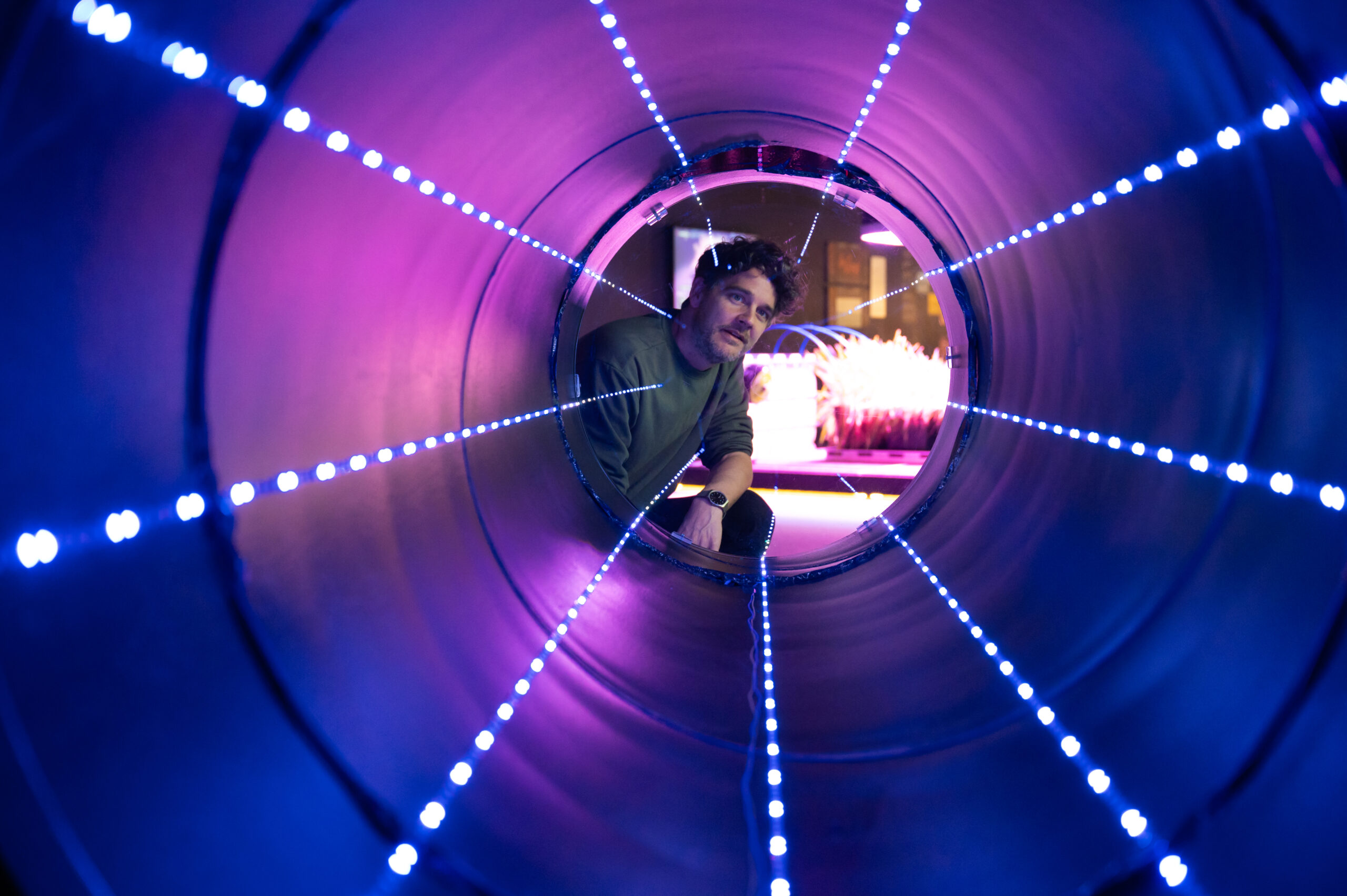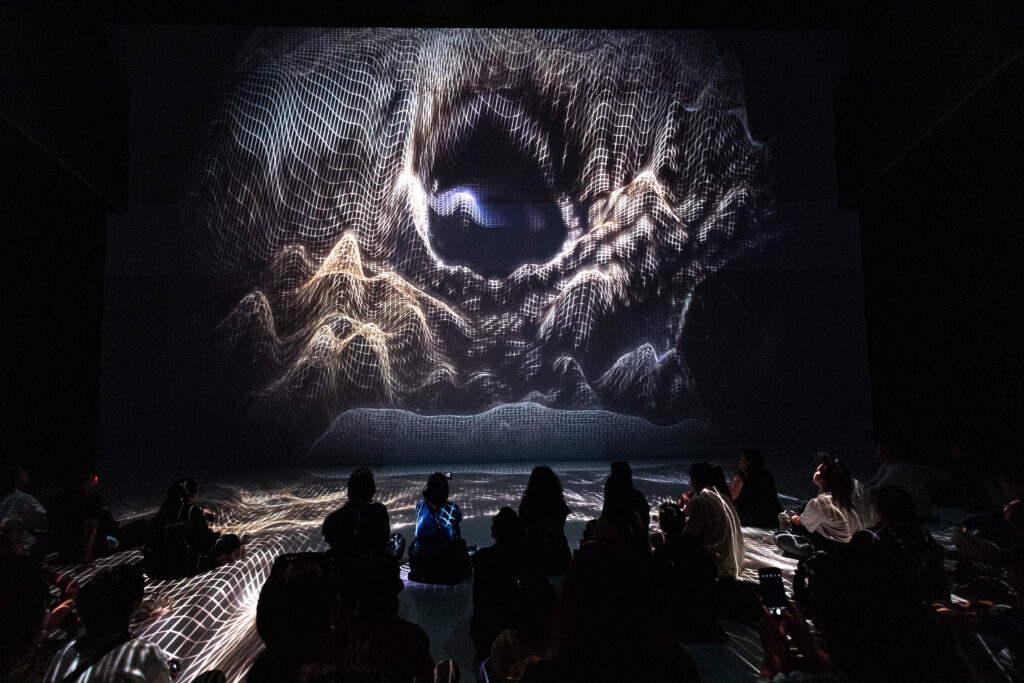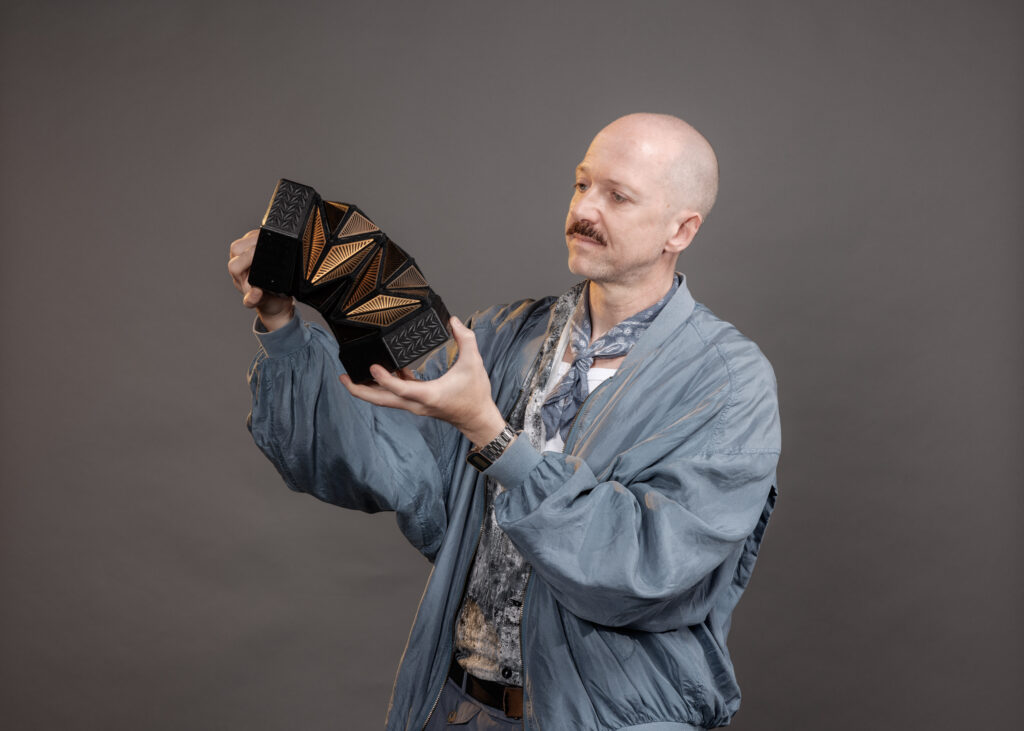- Press release as PDF
- More about the “Lange Nacht der Forschung” (engl. Long Night of Research)
- More about the Ars Electronica Futurelab
(Linz, May 21, 2024) The event “Lange Nacht der Forschung” (engl. Long Night of Research) will take place on Friday, 24 May 2024 from 5 pm to 11 pm at over 200 exhibition venues throughout Austria. The Ars Electronica Center will also be taking part and using the opportunity to present exciting research work from its own development department, the Ars Electronica Futurelab. Special guided tours, hands-on stations, presentations at Deep Space 8K and exclusive children’s programs for ages four and up invite visitors to discover, ponder and experiment. Project partners will also be there to present their current projects and forward-looking ideas.
Futurelab highlights at Deep Space 8K
Faust VR: How to build a time machine for the theatre
20:00-20:25 | Deep Space 8K
One way of making cultural heritage digitally accessible in the long term is demonstrated by Faust VR – a VR application developed by the Ars Electronica Futurelab in 2023 commissioned by the Salzburg Festival. In Deep Space 8K, visitors take a journey back in time to the theatre world of the 1930s, right in the middle of “Fauststadt”, the stage set of the celebrated Faust production by Max Reinhardt.
Deep Sync: How can we use our heartbeat to interact in an immersive space?
22:00-22:25 | Deep Space 8K
Deep Sync is an experiment by the Ars Electronica Futurelab that tests which subconscious functions can affect an immersive spatial experience. In Deep Space 8K, visitors’ heartbeats are translated into sound and visualizations – resulting in visible and audible changes in the room. This is where the research comes in: What does this individual experience do to us humans?
Data Art & Science Project: Can we use data artistically to make social problems visible?
17:30 – 17:55 | Deep Space 8K
Everyday life in the 21st century generates huge amounts of data – making it all the more important to discuss how this data is used, who owns it and how it can be used to tackle social problems. In Deep Space 8K, these questions become a sensory and emotional experience and lead to new ways of thinking about how we can understand the world around us.
Sustainable energy resources and sound experiments
– Highlights of the hands-on stations
Musical instruments made of origami: With the Oribotic Instruments, the Ars Electronica Futurelab is exploring how we can invent foldable musical spaces instead of classical music scores. Printed circuit board electrodes layered on textiles are designed as kinetic origami structures – allowing different sounds to be created through folding angles, folding paths and geometric gestures.
Utilizing thermal energy intelligently: The Heat Highway project (Johannes Kepler University, Ars Electronica) is looking at options for a sustainable and efficient energy system. It is developing a model for supra-regional heat transport to utilize waste heat from industrial sites efficiently for households, public buildings and transport.
Digital building models with just a few clicks: as part of the Long Night of Research, the program ELITECAD is turning architecture into a virtual experience by creating a customized 3D building from a drawn 2D contour in the shortest possible time – to be seen in high-resolution videos and images up to 16K.

Heat Highway / JKU Energy Institute, Ars Electronica Solutions (AT)
Photo: Ars Electronica / Birgit Cakir


